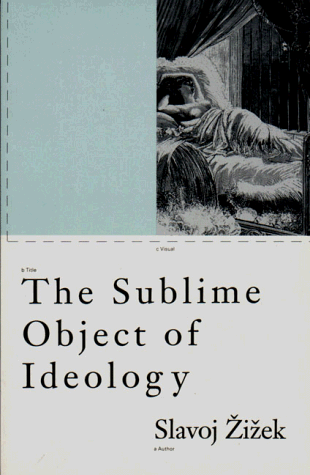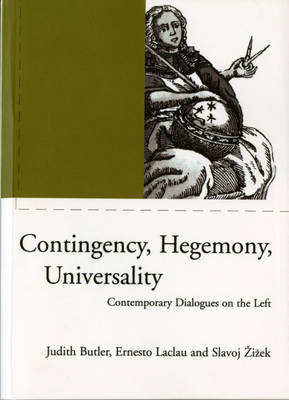Phronesis S.
4 total works
An exposition of the status of enjoyment within ideological discourse in which Hegel joins hands with Rossellini, Marx with Hitchcock, high theory with Hollywood melodrama.
In this provocative and original work, Slavoj Zizek takes a look at the question of human agency in a postmodern world. From the sinking of the Titanic to Hitchcock's Rear Window, from the operas of Wagner to science fiction, from Alien to the Jewish Joke, the author's acute analyses explore the ideological fantasies of wholeness and exclusion which make up human society.
Zizek takes issue with analysts of the postmodern condition from Habermas to Sloterdijk, showing that the idea of a 'post-ideological' world ignores the fact that 'even if we do not take things seriously, we are still doing them'. Rejecting postmodernism's unified world of surfaces, he traces a line of thought from Hegel to Althusser and Lacan, in which the human subject is split, divided by a deep antagonism which determines social reality and through which ideology operates.
Linking key psychoanalytical and philosophical concepts to social phenomena such as totalitarianism and racism, the book explores the political significance of these fantasies of control. In so doing, The Sublime Object of Ideology represents a powerful contribution to a psychoanalytical theory of ideology, as well as offering persuasive interpretations of a number of contemporary cultural formations.
Zizek takes issue with analysts of the postmodern condition from Habermas to Sloterdijk, showing that the idea of a 'post-ideological' world ignores the fact that 'even if we do not take things seriously, we are still doing them'. Rejecting postmodernism's unified world of surfaces, he traces a line of thought from Hegel to Althusser and Lacan, in which the human subject is split, divided by a deep antagonism which determines social reality and through which ideology operates.
Linking key psychoanalytical and philosophical concepts to social phenomena such as totalitarianism and racism, the book explores the political significance of these fantasies of control. In so doing, The Sublime Object of Ideology represents a powerful contribution to a psychoanalytical theory of ideology, as well as offering persuasive interpretations of a number of contemporary cultural formations.
Contingency, Hegemony, Universality
by Judith P. Butler, etc., Ernesto Laclau, and Slavoj Zizek
Published 18 May 2000
What is the contemporary legacy of Gramsci's notion of Hegemony? How can universality be reformulated now that its spurious versions have been so thoroughly criticized? In this ground-breaking project, Judith Butler, Ernesto Laclau and Slavoj Zizek engage in a dialogue on central questions of contemporary philosophy and politics. Their essays, organized as separate contributions that respond to one another, range over the Hegelian legacy in contemporary critical theory, the theoretical dilemmas of multiculturalism, the universalism- versus-particularism debate, the strategies of the Left in a globalized economy, and the relative merits of post-structumalism and Lacanian psychoanalysis for a critical social theory. While the rigour and intelligence with which these writers approach their work is formidable, Contingency, Hegemony, Universality benefits additionally from their clear sense of energy and enjoyment in a revealing and often unpredictable exchange.
Laclau's analysis of populist experiences begins with a critique of current approaches to populism. This is followed by a discussion of the classical theories of mass psychology and of the role of the lumpenproletariat in Marx's work.


